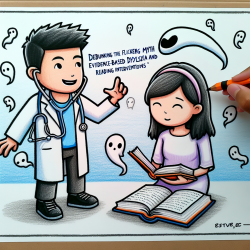In the realm of healthcare, the integration of team-based collaborative care has emerged as a transformative approach, particularly in managing chronic conditions such as coronary heart disease (CHD). The TEACH study protocol offers valuable insights into how this model can be effectively implemented to address both medical and psychosocial distress in patients with CHD. As practitioners, understanding and applying these findings can significantly enhance patient outcomes.
The Importance of Collaborative Care
Coronary heart disease remains a leading cause of mortality worldwide. While medical interventions have advanced, there is a pressing need for comprehensive care strategies that also address psychosocial factors. The TEACH study highlights the efficacy of a blended collaborative care model that combines usual medical care with proactive support from trained nurse care managers (NCMs). This approach not only targets cardiac risk factors but also addresses psychological distress, which is often a comorbidity in CHD patients.
Key Components of the TEACH Study
- Randomized Controlled Trial: The study involves 440 distressed CHD patients who are randomized to receive either usual care or enhanced collaborative care over 12 months.
- Nurse Care Managers: NCMs play a pivotal role by supporting patients in identifying sources of distress, establishing treatment plans, and monitoring adherence and progress.
- E-Health Resources: Patients and families have access to additional e-health resources to support self-help and healthy behavior.
- Outcome Measurement: The primary outcome is a 50% improvement over baseline on the HeartQoL questionnaire at 12 months, with secondary outcomes evaluating risk factors and health behaviors.
Implementing Collaborative Care in Practice
For practitioners looking to enhance their skills and improve patient outcomes, integrating collaborative care into practice involves several steps:
- Training and Education: Equip your team with the necessary training to implement collaborative care models effectively. This includes understanding psychosocial assessments and intervention strategies.
- Patient-Centered Approach: Focus on shared decision-making with patients to tailor interventions according to individual needs and preferences.
- Utilize Technology: Leverage e-health tools to provide continuous support and education to patients beyond traditional clinical settings.
- Regular Monitoring: Establish a system for regular follow-ups to assess patient progress and adapt treatment plans as needed.
The Future of Chronic Care Management
The TEACH study represents a significant step forward in chronic care management by demonstrating that addressing both medical and psychosocial factors through collaborative care can lead to improved health-related quality of life for patients with CHD. As healthcare continues to evolve, embracing such innovative approaches will be crucial in delivering holistic and effective patient care.
For practitioners eager to delve deeper into the research behind these findings, further exploration is encouraged. To read the original research paper, please follow this link: Efficacy of team-based collaborative care for distressed patients in secondary prevention of chronic coronary heart disease (TEACH): study protocol of a multicenter randomized controlled trial.










